Open a new tab
Why Google doing AI search is just different
Searching on Google will soon be like this:
Not just because the “I’m feeling lucky” button is disappearing, but because Google has officially introduced something it calls “AI Mode.”
This means that instead of just tossing you a list of blue links, Google Search will now host a conversational AI assistant. Ask it questions, follow up with more, get crisp, synthesized responses (with small numbers referencing websites)
Think of it less like searching the web and more like… chatting with it.
(And, well, they also rolled out a bunch of other stuff nicely wrapped up in a mind map by - of course - NotebookLM, one of Google’s own AI tools.)
Now, from a technological standpoint, this isn’t exactly groundbreaking anymore. On Artifacts, we’ve been talking about AI-driven search since February 2024. By now, many of us are already familiar with the likes of ChatGPT or Perplexity digging through the web on our behalf.
In short: we’re used to talking to the internet.
The shift already happened - from dry, scattered link lists to tight, tailored responses. But the lingering question has been: what is Google waiting for? Now we know.
And commercially? Well, this might just be the opening scene of a new era. Here’s why:
Google, that for most of us equals the Internet, is embracing and shaping what they called “a total re-imagination of search”. It is, in a sense, the Internet going in a whole new direction.
This is not just a tool enabling AI search. It’s Google baking AI into everything. Search, yes, but also Gmail, Docs, Drive. The whole productivity suite is being rewired with intelligent, conversational search assistance.
And unlike Perplexity or other AI tools, Google’s shift will be impossible to ignore. It’ll be right there, front and center, for the billions who already default to it. No tutorials needed. No effort required. Just… different.
And search is just likely to be radically something else in a couple of years.
Here’s how it works, according to the people building it:
When you ask a complex question, Google’s AI-powered Search kicks into “advanced reasoning” mode. It uses its custom Gemini model to break your query into smaller parts and fires off multiple searches at once.
It digs deep across the web and taps into Google’s real-time data sources like the Knowledge Graph, Shopping Graph, and even local info from Google Maps contributors.
Then it assembles a polished answer. All of that, from just one query - and fast.
As the Verge put it, it’s Google doing a lot of Googling.
But this is bigger than search.
First off, it’s what the AI folks call agentic — yes, the new favorite jargon word you’ll need to pretend to understand at conferences. But jargon aside, the idea is simple: it doesn’t just find things for you, it does the finding, the reading, the summarizing — and hands you back the insight.
Which brings us to the bigger shift: the interface itself.
Fewer clicks. More conversation. You ask, it answers, you refine, it continues. A back-and-forth, not a click-and-hope.
It’s a new User Experience — one that’s less about hunting through links and more about getting usable content, right away.
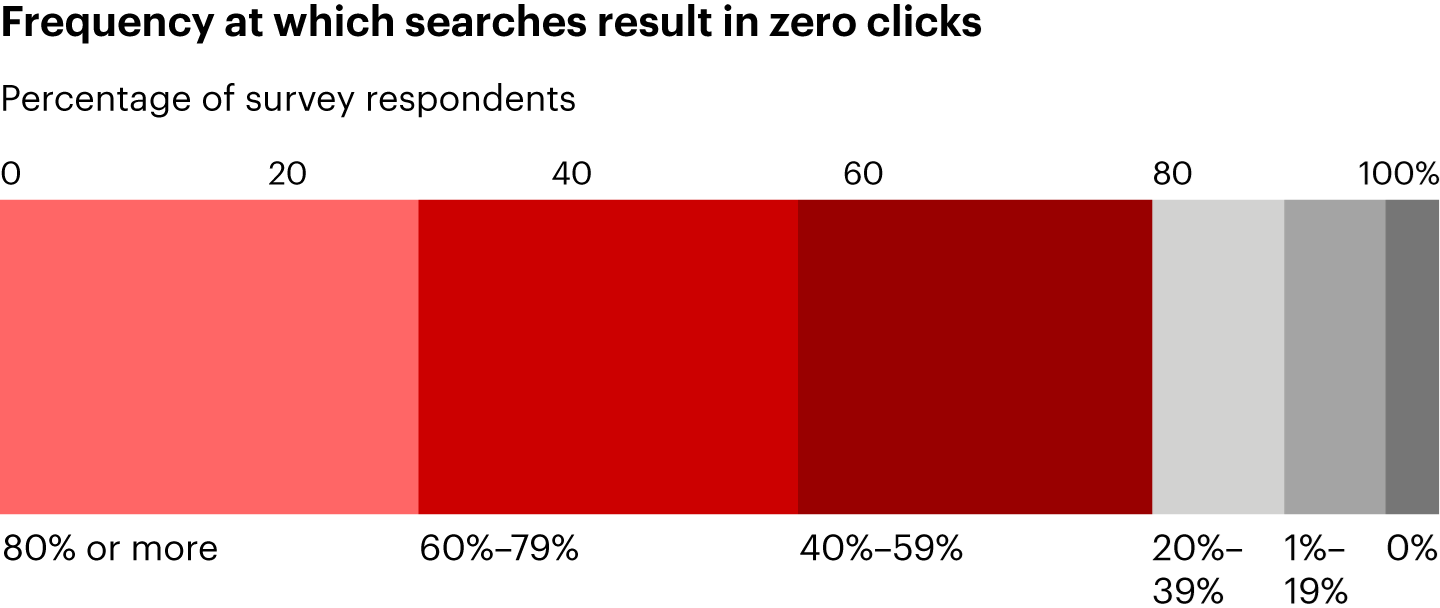
As Google puts it:
The way we’ve all Googled for two decades was largely a response to the structure of the web itself: web pages in, web pages out. Good AI models are now able to get around that structure, and find and synthesize information from lots of sources
Put plainly: it’s just easier. And probably irreversible.
All of this will, of course, not come without implications.
First casualty: the humble web page. As we’ve explored before, AI search means machines read pages, rewrite the content, and feed it back to users — without users actually visiting the source. Less traffic. Less visibility. Less ad revenue.
Websites and especially media are not happy about this. They’ve called this “a definition of theft”. In response, Pichai (CEO at Google) said they expect AI to direct even more traffic to websites.
Second problem: Google’s own business model. If no one’s clicking on pages, then traditional ads - the ones that made Google $198 billion last year - lose their audience. So now Google is playing both sides: disrupting the old model while still trying to milk it.
It’s the innovator’s dilemma: evolve or protect what’s already working. In this case, Google needs web content to train and feed its AI, and publishers need Google to reach audiences. A delicate co-dependence.
Finally, the SEO apocalypse. For two decades, websites played the game of rising to the top of Google’s results. Now, the real prize is to be included in the AI-generated answer. Buried in a citation.
That’s a whole new game - not of visibility, but of inclusion. Across Google, OpenAI, Perplexity, whoever ends up writing the answers the internet reads.
What does this mean for media? Business? Education? Any site that once relied on search-driven traffic?
That’s the billion-click question.
We’ve gone from a layered, intricate Internet - Google, links, websites, ads - to a flattened experience where AI intermediates it all.
The number of interfaces is shrinking. The AI now browses for us.
Sure, talking to the internet is easier than clicking through it.
But what that means for who owns attention - and who profits from it - is still very much up for grabs.
Save for Later
If we can’t speak because of AI. But we can vibe-code, and this is soooo cool.
What is the future of UX, nowadays. And a huge speech from Steven Levy!
If we go back to the “Actually” internet. And Amazon knows a lot about your family.
Uh, they’re no longer building Arc. Damn!
Seem like we’re the most rejected generation.
Alessandro Tommasi is soooo back with FutureProofSociety, its new start-up, now organising a 3-day event full of workshops, conferences, and ideas on how to build a future-proof society.
Where? L’Aquila, Italy - When? 5-7 June
Why? Well, they’re having Anne Applebaum, Benedict Evans (who just published these huge slides on tech), Stefano Quintarelli (the guy behind Spid), Meredith Whittaker (president of Signal!), and so many other brilliant minds. More than enough to come!
(Got 3 free spots in my car from Rome - good podcasts, tech talk guaranteed, and mr. Bongiorno included)
The Bookshelf
Speaking of attention in a broad manner, Tim Wu put some very good thoughts in his “Attention Merchants”. For anyone creating stuff on the Internet (and struggling with AI indexing soon!)
📚 All the books I’ve read and recommended in Artifacts are here.
Nerding
Just build your app, your tool, your software writing in plain english. We saw Lovable before, but, trust me, it’s just insane what these guys are doing. Coding is really becoming a commodity.
We’ve been here before
☕?
If you want to know more about Artifacts, where it all started, or just want to connect...




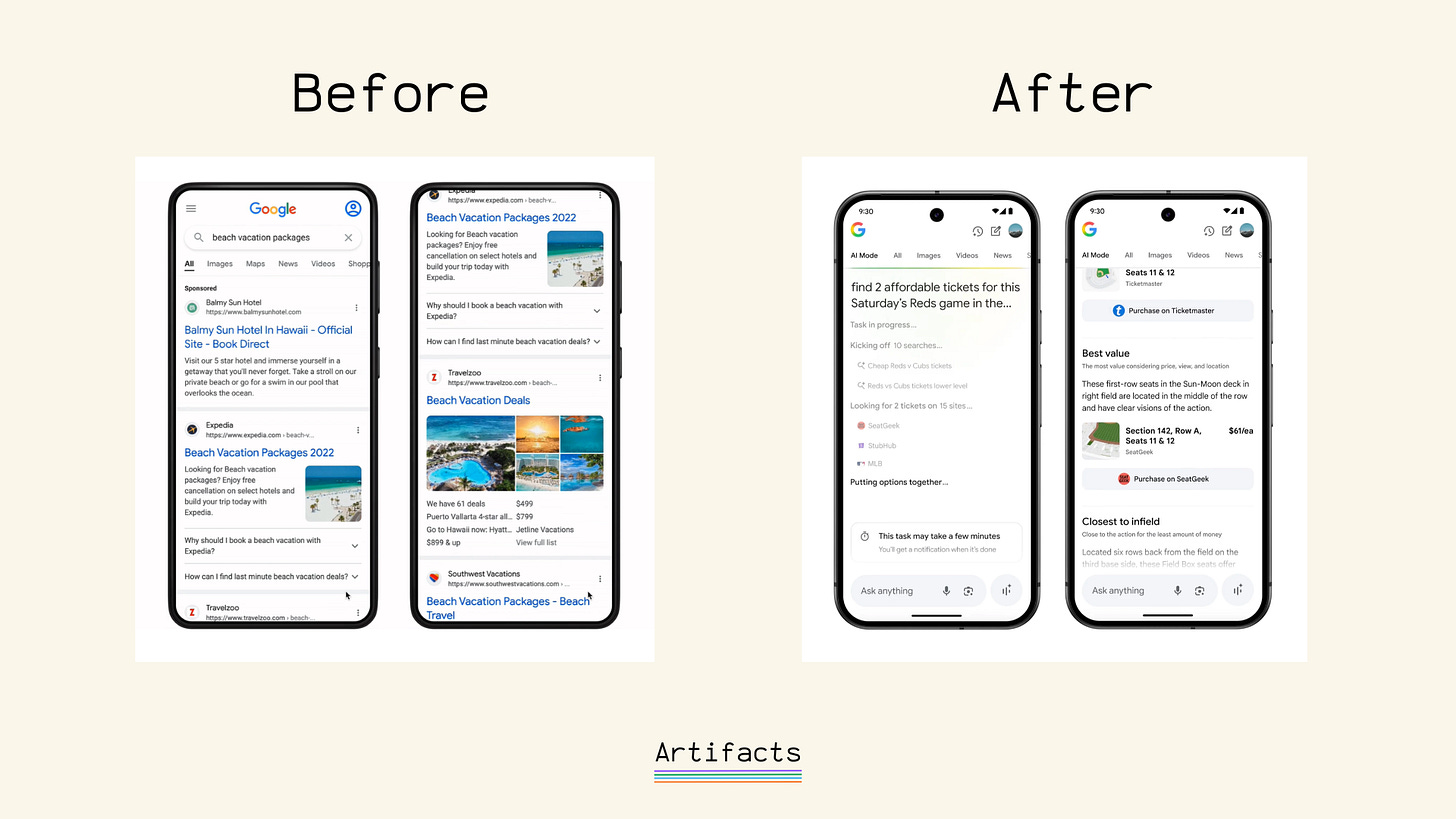


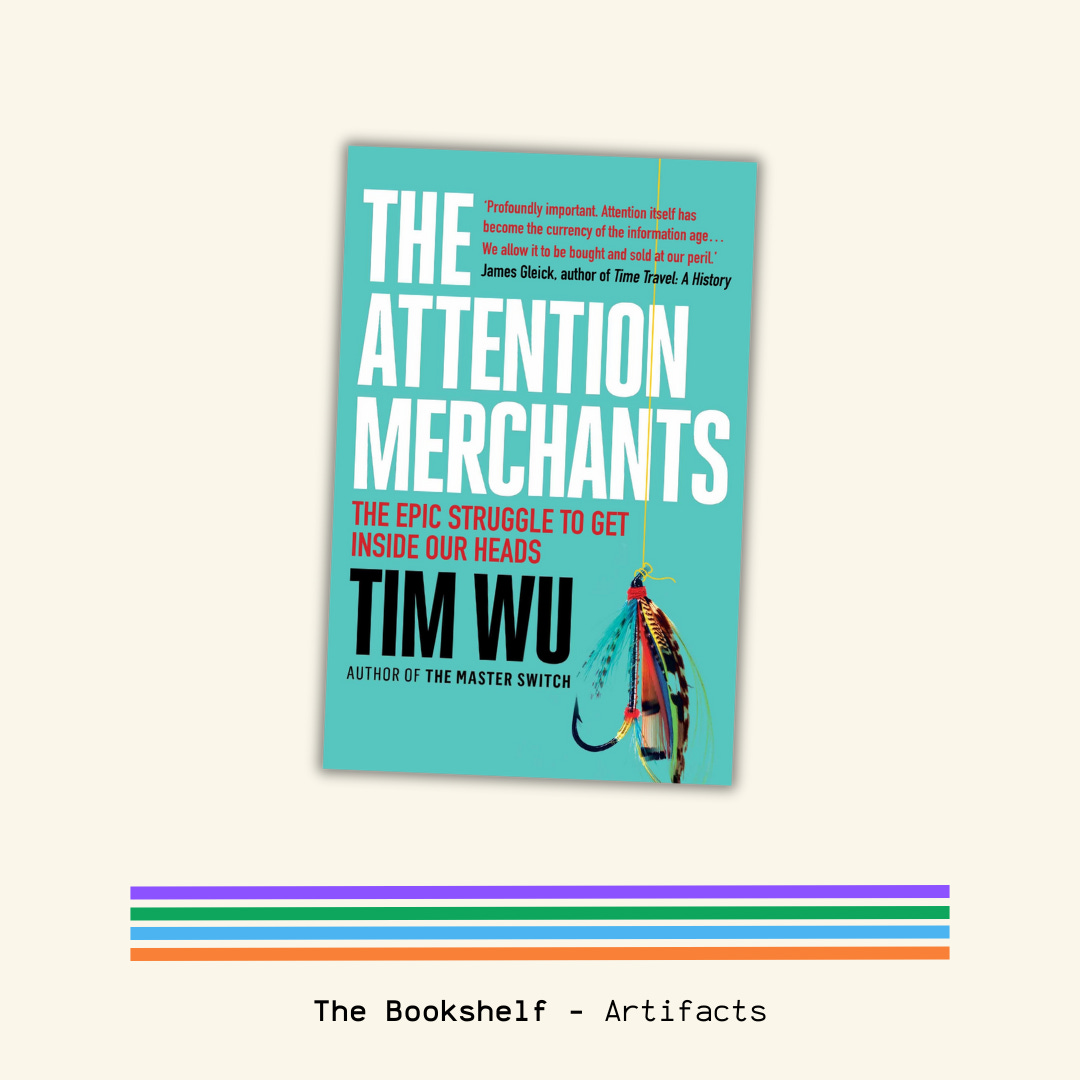
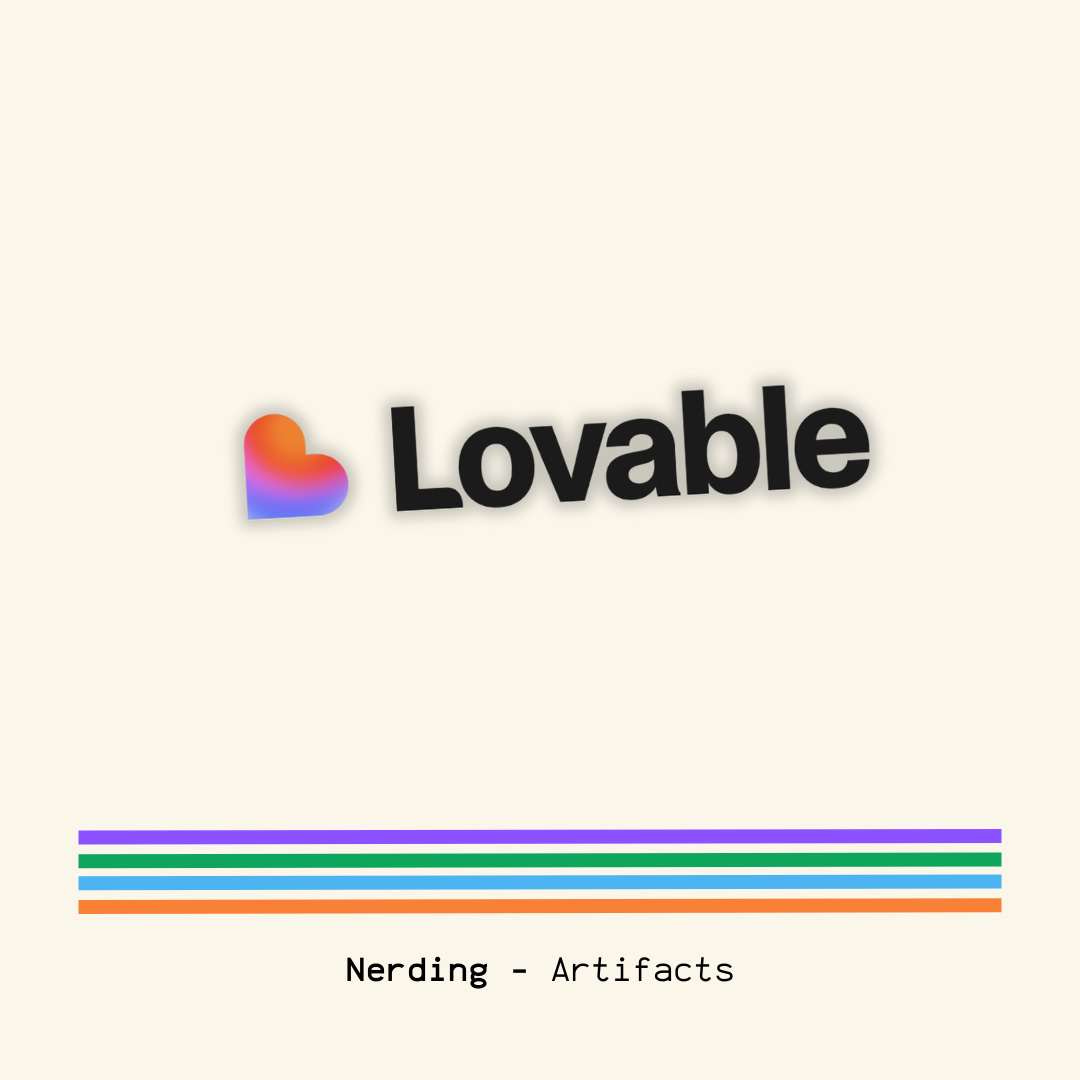
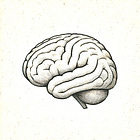

Questo pezzo è un super pezzo. Per l’originalità della scrittura, l’attualità delle questioni e (mia cosa preferita) la capacità di semplificare cose complesse anziché “gurizzare” concetti semplici. Bravissimo!
Bel pezzo Lorenzo! Domanda molto naive, che mi sembra il cuore della questione per le implicazioni di traffico sui siti: esiste qualcosa di analogo ai criteri di ottimizzazione SEO anche per l'inclusione dei contenuti dei siti negli output dei modelli di AI? Questi criteri sono model-dependent? Non so se ci sia una risposta, ma se ci fosse mi piacerebbe leggere la tua spiegazione su questo. Ti segnalo anche questo pezzo del Post uscito ieri riguardo a Perplexity (https://www.ilpost.it/2025/05/30/perplexity/): magari l'hai già visto, ma il fatto stesso che Google abbia sponsorizzato l'ultimo numero di Artifacts per parlare del suo assistente conversazionale, mi sembra emblematico della tendenza. Ciao!